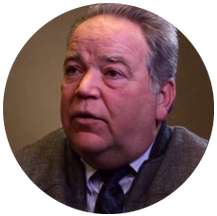I can’t smell gambling addiction on the breath of the people I counsel. I can’t see it in their eyes and it doesn’t show up on a drug screen. Maybe those are reasons that gambling addiction usually remains hidden from families and friends until it’s too late.
The financial, emotional and relationship-shaking damage caused by gambling addiction often sneaks up on families. Consider one couple I work with. The addict’s partner told me that “everything was fine until it wasn’t.”
By the time the wife found out about her husband’s addiction, he was so far into it that it had altered who he was as a person. He had gambled tens of thousands of dollars in secret at casinos. She didn’t find out until he lost his job, came home and told her the truth. Gambling addiction changes brain chemistry and processes just like drug or alcohol addiction does.
Two years later, they still work together to heal the wounds.
Gambling addiction often hides in plain sight, in part because of our love/hate relationship with it. Gambling is a $240 billion industry in the United States alone, and Americans lost $119 billion in 2013. Our fascination with gambling – the world’s oldest pastime – dates back to our pre-history, with religious rituals often surrounded by ancient fortune-telling. Egyptians tried to outlaw gambling 5,000 years ago and King Richard tried to ban dice among his troops in 1190.
Sometimes gambling addiction hides behind other mental health issues. Up to half of all gambling addicts have a substance abuse disorder and a psychiatric condition. At least three-fourths of all gambling addicts suffer from depression, according to the National Council on Problem Gambling. And one in five gambling addicts attempt suicide, twice the rate of people with other addictions.
Gambling addiction brings serious consequences. Gambling addicts commit higher incidences of crime, especially theft or check forgery. Male gamblers build an average debt estimated between $55,000 and $60,000.
We want to bring gambling addiction out of the shadows. We’ve worked with the faith community and conducted a series of public seminars that discussed the signs and symptoms of gambling addiction that often go unnoticed, described the help available to make a path out of the financial thicket gambling addiction creates, and spelled out the ways people can truly deal with the emotional trauma of gambling addiction.
Maryhaven, one of only six recognized gambling addiction treatment centers in Ohio, offers an array of educational and counseling services to pathological gamblers and their families. Thanks to the Alcohol, Drug and Mental Health Board of Franklin County, these services are available to all residents, regardless of ability to pay.
Last year, our One More Chance gambling program treated more than 100 people in Franklin County. But our research shows that as many as 54,000 people are at risk of becoming gambling addicts. The Ohio Department of Mental Health and Addiction Services estimates that nearly 1.5 million Ohioans have a family member with current or past gambling problems.
If you or someone you love shows signs of gambling addiction, don’t hide from it any longer. The addiction may be hidden, but you don’t have to be.
Be sure to check out video from one of our recent family seminars!

